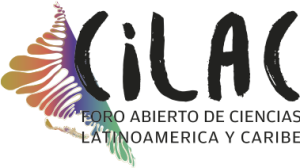
Montevideo, Tuesday, September 6 – Dr. Tabaré Vázquez, President of the Eastern Republic of Uruguay, will inaugurate the First Latin American and Caribbean Open Science Forum with an inaugural keynote lecture. The ceremony will take place on Wednesday September 7th at 08:30 am in the Los Robles Hall of the Technological Laboratory of Uruguay. In the words of Juan Roballo, Deputy Secretary of the Republic “For Uruguay it is an excellent opportunity to host CILAC 2016 and be able to exchange experiences and generate synergies with friendly countries for joint growth and development. “That has always been the vocation of Uruguay.”
The Uruguayan authorities understand that cooperation in Science, Technology and Innovation (STI) is essential for compliance with the 17 Sustainable Development Goals (SDGs) to which countries have committed. They also understand that sustainable development does not only imply economic growth, but also generates capabilities, knowledge and technologies to transform the way in which it is produced, consumed, the way in which people relate to each other, and to nature, ultimately. the way they live. For Lidia Brito, the UNESCO Regional Director of Sciences for Latin America and the Caribbean, CILAC will allow us to see how, through scientific knowledge and innovation carried out in the region, a roadmap can be created to advance together towards the objectives of the 2030 Agenda.
Why has Uruguay been chosen to host CILAC? Brito highlights the country's successful experiences in the use of technology for sustainable development, including the changes achieved in its energy matrix towards cleaner sources, advances in access to drinking water in rural populations, as well as the application of information technologies in education.
With more than 1,300 registered participants, the event will receive Ministers and senior STI authorities from more than 15 countries. Likewise, 30 rectors of public universities in the region will travel to Uruguay for the event. Prominent scientists and researchers from four continents will present the results and projections of their work within the framework of the Agenda.
A vast proposal for Research and Development topics covers advances in neuroscience, digital anatomy, global projects, such as Future Earth, he South African SKA (Square Kilometer Array) project and issues of great global concern such as water resource management, renewable energy sources and climate change.
The need for integrated policies in the region, which optimize opportunities such as an Ibero-American space or south-south cooperation, is also the reason for the call, covering issues of public investment in infrastructure, research development in frontier science, among others. Gender issues and science education at different levels are also part of the three-day program. Science and ancestral knowledge, citizen participation in science, science and culture issues, will also have their space in this proposal for openness and convergence of knowledge.
For three full days, CILAC will offer the Region from Montevideo a dynamic space for discussion, analysis and joint projection within the framework of the 2030 Agenda.
Register, attend. Access is free and open.
Register for CILAC here, BE PART, we are waiting for you
IS ESSENTIAL SUBMIT ACCREDITATION, IF YOU REQUIRE ASSISTANCE FOR THIS, CONTACT US. We are at your disposal to facilitate this process for you.
Journalist or news agency?
Paula Santos
p.santos@unesco.org
598 98 52 32 82
Denise Tamer
d.strap-tamer@unesco.org
598 98 855 063

